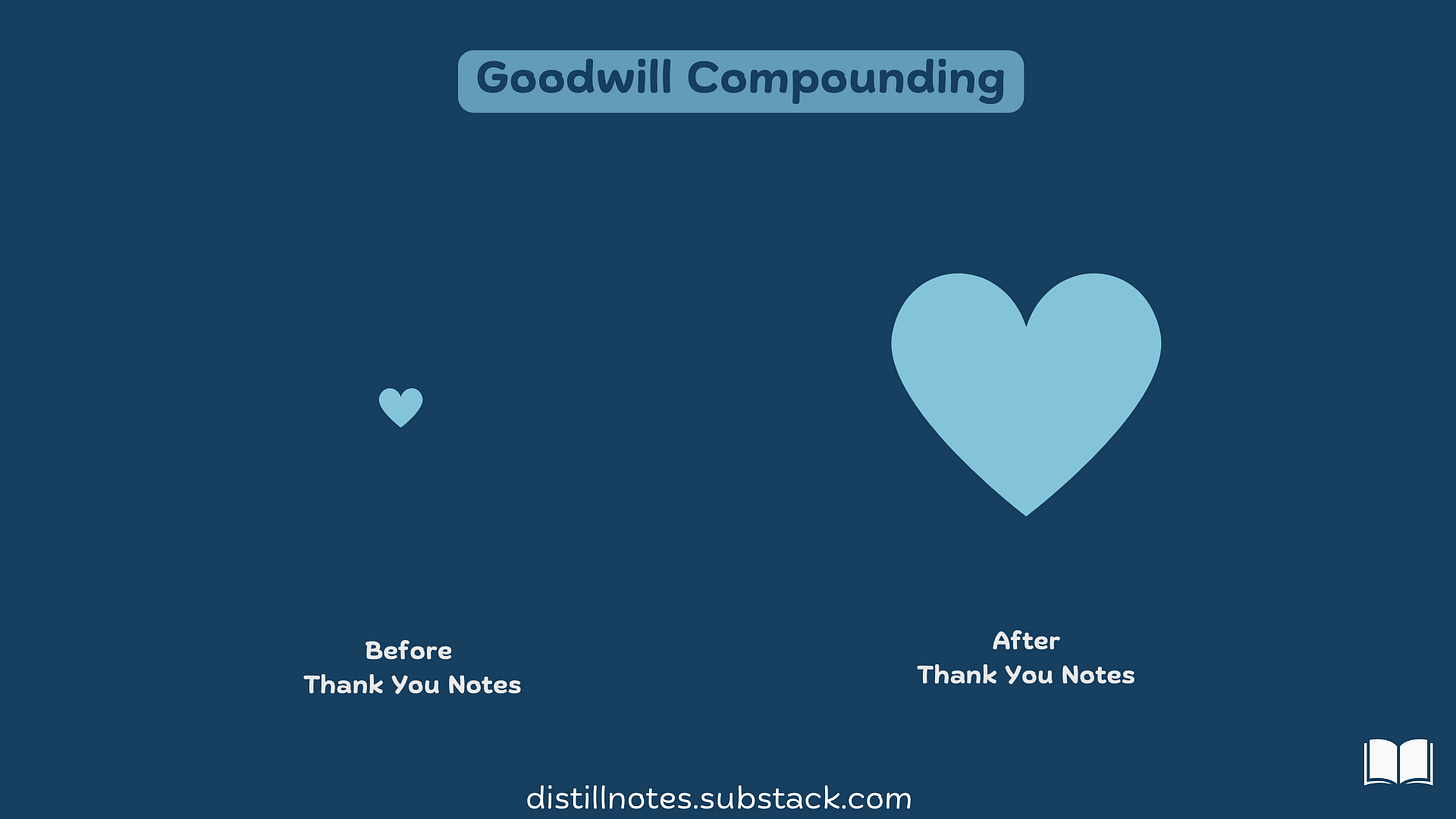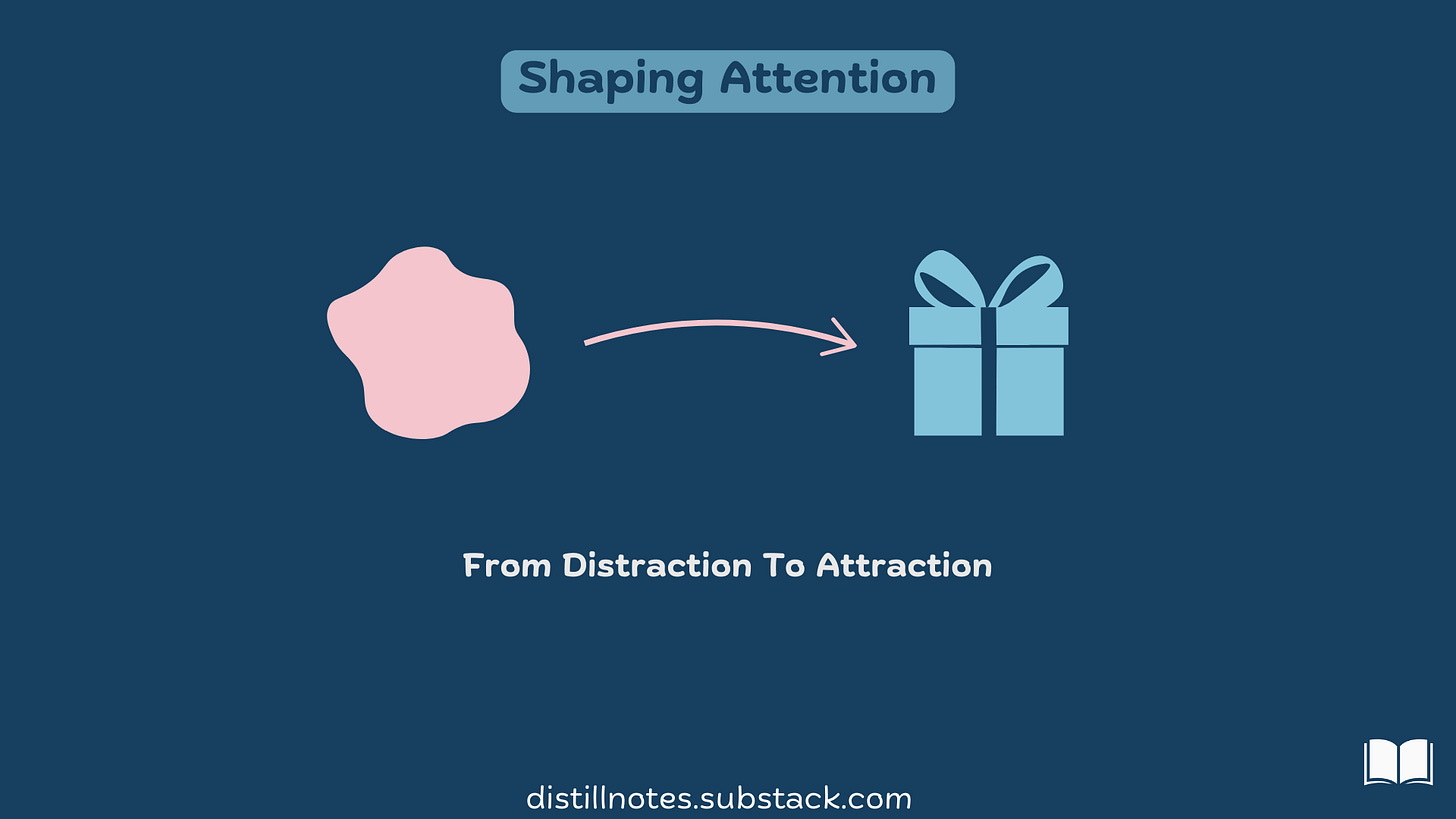Goodwill Compounding - Learn To Apply Compounding In Relationships from Value Investor Guy Spier
From Finance to Friendships
Everybody likes a compliment.
—Abraham Lincoln
This week I’ve collected a passage from the book Education of a Value Investor by Guy Spier on the concept of goodwill compounding.
It explores how we can apply the power of compounding not only in finance but also in our relationships.
By the end of this letter, you'll learn how to:
Practice gratitude and become more socially aware
Develop humility and care more about others
Live more honestly and authentically
Let’s dive in.
Guy Spier is a renowned investor and managing partner of the Aquamarine Fund, known for his intellectual humility, introspective approach, and blending value investing with personal transformation.
Here’s how Spier share his experience:
Each year, on the first weekend in May, I’d make my pilgrimage to Omaha for Berkshire’s annual meeting. I would typically stay at the Omaha Marriott, close to the heart of the action. The night before the meeting, Munger would host a private dinner there.
I’d hang out in the lobby and watch with fascination as his eclectic group of guests passed by—people like Bill Gates, Ajit Jain, and Robert Cialdini. This reinforced my sense of Cialdini’s importance, so I read and reread his books multiple times, consciously pounding in his message over and over.
What affected me most was an extraordinary story Cialdini told about a Chevrolet salesman, Joe Girard, who regularly wrote holiday cards to thousands of his former customers with the words “I like you” printed on each card, along with his name. This personal expression of goodwill had an unbelievable effect: Girard won a place in the Guinness World Records book by selling 13,001 cars in 15 years. As Cialdini writes, “We’re phenomenal suckers for flattery,” and “we tend to believe praise and those who provide it.
I was fascinated.
Was it really that simple?
Was it all just a matter of harnessing this “liking” principle?
I have a tendency to go to the extreme: if an idea resonates for me, I don’t just flirt with it—I embrace it to the nth degree. So I decided that I would write three letters per working day, or 15 per week. I began to thank people for giving a great speech, for sending me their investor letter, for providing a great meal in their restaurant, for inviting me to their conference. I would send people cards to wish them a happy birthday. I’d send them research reports or books or articles that I thought would interest them. I’d send them notes saying how much I’d enjoyed meeting them.
At around the same time that I read Cialdini’s books, I also stumbled upon a book that included many of Ronald Reagan’s letters. He wrote to an amazing range of people, and he seemed to have a genuine interest in every one of them. He shared jokes and advice, addressed their concerns, encouraged kids. It seemed to me that this was part of the secret of his success. He wasn’t the most cerebral American president, but he mastered the art of caring for others, and he expressed his care through letters. If this had worked for the president as well as for America’s top car salesman, I knew there was something in it for me.
At first, my letter-writing experiment was quite calculated, since I did it with an explicit desire to improve my business. I had a clear expectation of what the results would be. But it started to feel really good, and I became addicted to the positive emotions that this activity stirred in me. As I looked for more opportunities to thank people, I found that I truly did become more thankful. And the more I expressed goodwill, the more I began to feel it. There was something magical about this process of getting outside myself and focusing on other people.
Tony Robbins had taught me that small differences in how we behave can, over time, have a profound impact. And this small action of writing hundreds of letters a year was transformational for me. Initially, it wasn’t easy. I often didn’t know what to write or to whom. So I’d end up writing to my doorman or the person who’d served me coffee that morning. At times, I felt foolish. And I didn’t see an immediate impact. My view now is that it can take as long as five years to have a significant effect, so most people give up long before they reap the benefits.
In sending out this cascade of letters, I began to open up to people in a way that I never had before, and I started to see everyone around me as someone I could learn from. As I now understand, this habit of writing letters is an incredibly effective way of compounding goodwill and relationships instead of merely compounding money. Einstein is often said to have called compounding the eighth wonder of the world. But the narrowly financial application of compounding may be the least valuable and least interesting aspect of this phenomenon.
My letter-writing crusade had begun as a way of marketing my fund, but it ended up giving me a richness of life that I could hardly have imagined. Rather than becoming a good salesperson, I found myself starting to care about the people I was writing to and to think about how I could help them. The paradox is that, as I became more authentic and discarded my agenda, people became more interested in investing in the fund. This was an unintended consequence of becoming less selfish and more honest about who I am.
Source → Book The Education of A Value Investor by Guy Spier
Why Should We Care?
In today’s hyper-digital world, genuine connection has become rare. The more connected we seem on social media, the less connected we truly are in real life.
Instead of mindlessly scrolling or scattering our attention for free, Guy’s practice offers a better way - to give your attention a shape.
When we give our attention a tangible form—like a letter or a thoughtful message—it becomes a cherished gift, one others willingly make space for in their hearts.
Genuine compliments secure their place in the heart.
Just 10 intentional minutes spent writing a heartfelt note can transform relationships.
This compounding effect of goodwill is a powerful way to enrich not just others’ lives, but your own.
Also, this reminds me of a famous line from the renowned book How to Win Friends and Influence People: “Be hearty in your approbation and lavish in your praise.”
Give honest and sincere appreciation—it can make all the difference.
The paradox is that you end up receiving infinitely more in life by giving than by taking.With this, I’m starting my journey of writing thank-you notes—small gestures to share gratitude and build deeper connections.
Would you join me by starting yours?
Leave a comment.
Compounding that is a deceptively simple but immensely powerful concept that can be applied to much more than just making money. The principle has worked exponentially in my life to expand my connections to the world. Each time I reach out to say “thank you,” it is as if I am inviting serendipity to strike — my only regret is that I did not discover it sooner.
— Guy Spier
Key Takeaways
1. Goodwill compounds like money.
2. Everybody likes a compliment.
3. Look for opportunities to thank people.
4. Give honest and sincere appreciation.
5. Master the art of caring for others.
6. Genuine compliments secure their place in heart.
7. Giving yields infinitely more in life than taking.
Content Diet This Week
🔉 Expectations Investing Explained w/ Michael Mauboussin (TIP421)
📖 Expectations Investing by Michael J. Mauboussin, Alfred Rappaport
📖 A Simple Act of Gratitude by John Kralik
💭 Quote of the Week 👇🏻
“Persistence and nonaggression can be an irresistible combination.”
— Zoe Chance
P.S.
Thank you for reading this edition of Distill Notes!
Wishing you success in building returns on your social capital!
This week, I delved into reading about investing, sales, and marketing. For me, investing is not just about money—it’s about building character. By studying great investors and applying their lessons, I aim to grow more rational and intentional in life. Along this journey, I’ll continue to share the best insights with you.
If you haven’t subscribed yet, click below to stay updated.
See you guys next week!
#you_are_more




